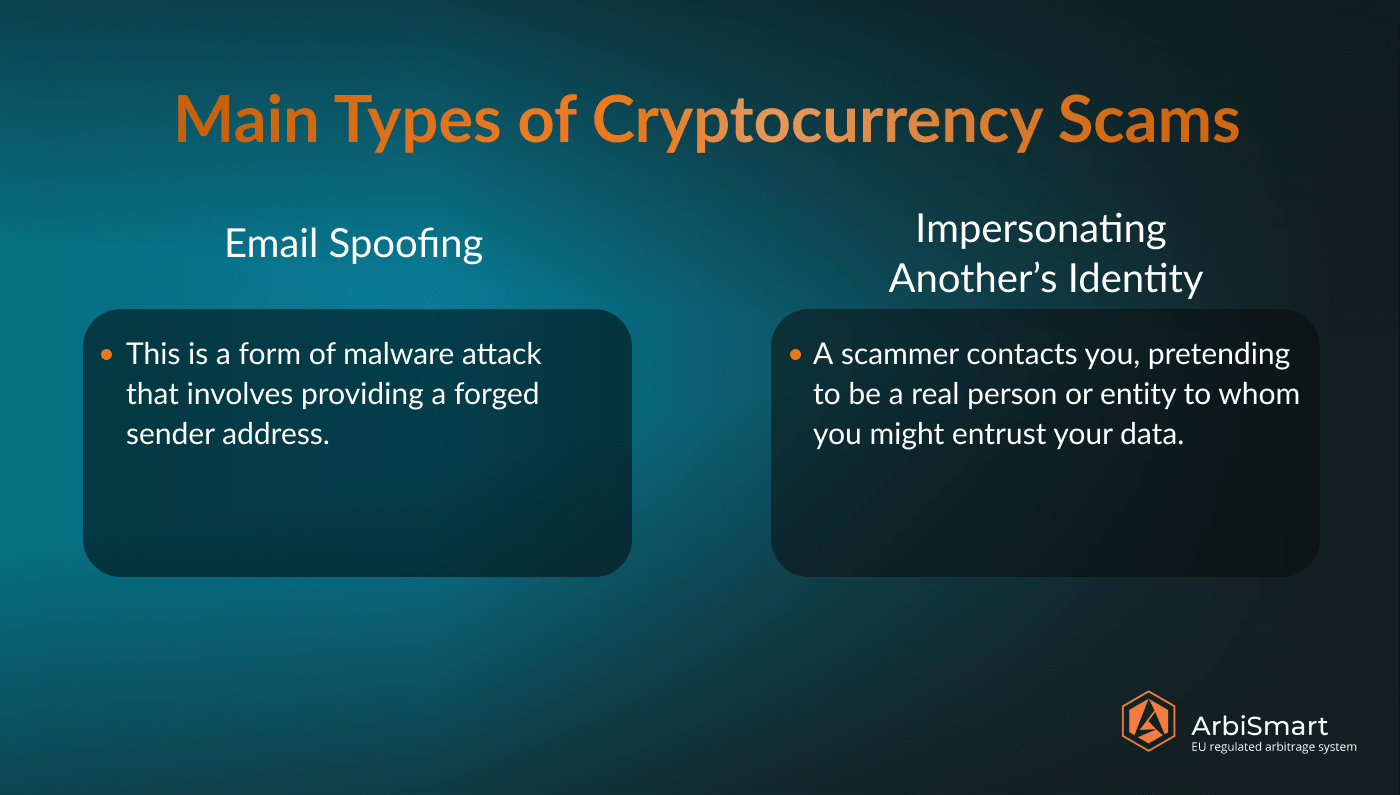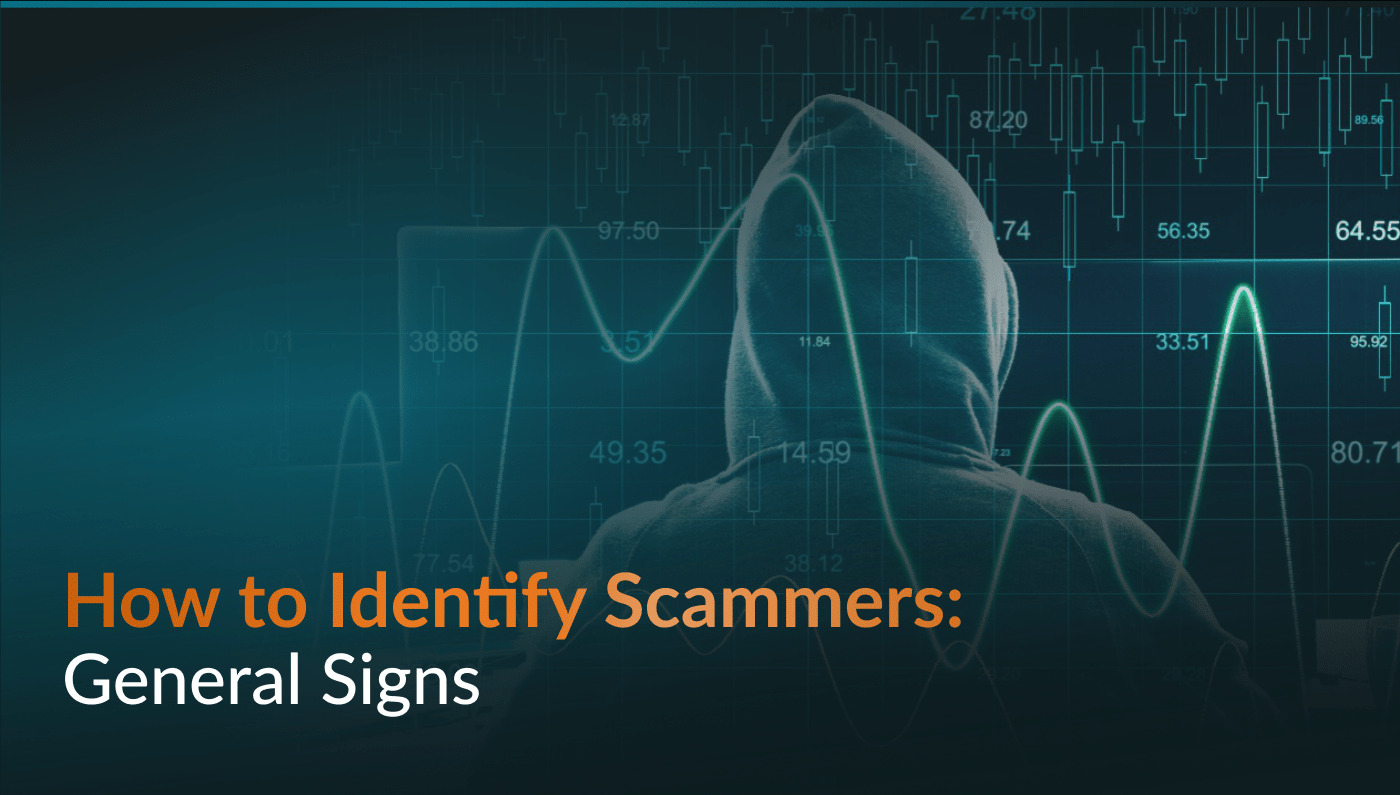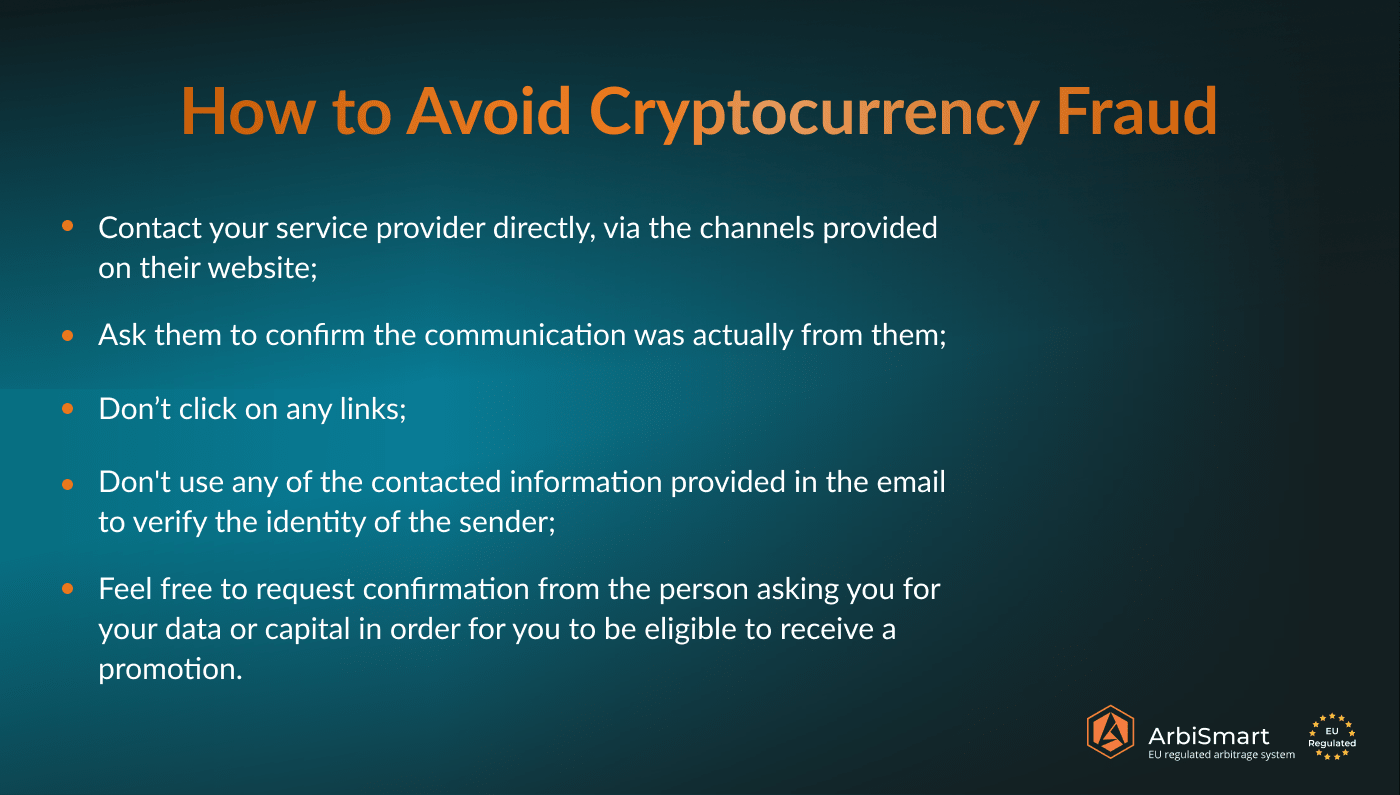Common Crypto Scams and How to Avoid Them
With rapidly growing interest in crypto among mainstream investors, as more people are entering the space to take advantage of the huge profit potential of digital currency markets, the amount of criminal activity is also increasing. You will know, if you have ever been the victim of a Bitcoin scam that how to get money back is the biggest problem, since it is impossible to track an anonymous transaction on the blockchain. So, in this article, we will look at some of the major types of cryptocurrency fraud, examining what to watch out for, what to do if you suspect scams and how to avoid losing your capital.
Main Types of Cryptocurrency Scams

Blockchain technology is exceptionally secure, with powerful encryption. While hacks do occur, the most successful attacks are actually relatively low tech, with cryptocurrency investment scams like spoofing, and identity impersonation being the most prevalent and effective.
Many crypto scams are based on claiming a false identity. This can involve, using a similar username to someone else, in the hopes of being mistaken for that person, faking an email address, stealing the identity of a real person, or creating a completely fake one.
Email Spoofing: This is a form of malware attack that involves providing a forged sender address. It is done by editing an email’s metadata to match the details of the individual, company, or institution that the scammers are impersonating. This is data that by default, is not made visible to the recipient of an email, making identification of these crypto scams particularly challenging. Gmail and other email providers are working hard to improve client-side detection and identify spoofed data, but the protections currently in place are far from foolproof.
Impersonating Another’s Identity: This type of cryptocurrency fraud occurs when a scammer contacts you, pretending to be a real person or entity to whom you might entrust your data, such as your wallet provider, and tries to get you to give them access to your funds, for example by asking you to verify your account details. In the best-case scenario, this type of scam can be easily identified by the fact that the sender will have a username or email that bears no relation to the real person and in some cases is even just a random collection of letters and numbers.
More sophisticated crypto investment scams will include a more concerted effort to have realistic-looking identification. For example, a slightly smarter scammer, pretending to be Elon Musk asking for Bitcoin donations may use the handle Elon_M. It is hard to be certain who is contacting you but some channels will give you ways to verify an identity such as Twitter, where you can confirm someone’s official account, using the “blue check” feature. However, you need to be particularly careful that they are not using a name that is intentionally very similar to that of the real person, except for a single keystroke, e.g Elon_M, instead of Elon-M or using an email like @telsa.com instead of @tesla.com
In the year ahead, we are likely to see an increase in cryptocurrency scams, as 2021 experiences greater mainstream adoption of crypto. This growing popularity will inevitably be accompanied by a rise in all forms of crypto fraud, so to avoid being scammed you will need to stay alert.
The very nature of blockchain technology contributes to the difficulty, as its primary advantages such as the speedy, digital transfer of funds pseudonymously, with no governmental interference or oversight, make it hard to track funds. There is no name, or other identifying data, just alphanumeric strings, meaning that the issue of how to get money back from scammers, for Bitcoin investors who have been scammed, is exceptionally problematic. So, you need to be vigilant and look out for the signs of crypto scams to ensure you are not fooled in the first place.
How to Identify Scammers: General Signs

As we noted above, paying attention to the sender details of any communication you receive that requests financial or other personal data is essential, but aside from incorrect usernames and emails, there are a number of other indicators that should tip you off that you are being scammed.
One simple rule is that if you are being contacted by a company with which you have had no previous contact, you should be very careful. Unsolicited contact from someone making you an offer for which you will need to provide sensitive data or transfer funds should make you suspicious. All the more, if you have been sent an incredible promotional offer, requiring you to make a deposit, which appears far too good to be true, then it probably is, and you should not be sending them your funds.
Any official sender, such as an established company like your wallet provider, should be sending you well-written, correctly spelled and formatted content. If not, this is also a good sign that you are dealing with one of the many types of crypto scams.
How to Avoid Cryptocurrency Fraud

If someone is reaching out to you claiming that they are from your trading platform or wallet, then the simplest smartest move is to contact your service provider directly, via the channels provided on their website, and ask them to confirm the communication was actually from them.
When you do receive a suspicious communication, whatever you do, don’t click on any links, or use any of the contacted information provided in the email to verify the identity of the sender as it could have been changed by a scammer.
Also, feel free to request confirmation from the person asking you for your data or capital in order for you to be eligible to receive a promotion. This can include asking them to provide information relating to the offer on the company’s official social channels and website or contacting you from a phone number that is officially listed as belonging to the company they are claiming to represent. If they are reluctant to do any of these things, then you should not provide them with either your money or your personal information.
While cryptocurrencies offer exciting, lucrative opportunities with greater speed, accessibility and cost-efficiency than ever before, the anonymity and lack of consistent legislation make it an attractive prospect for scammers. In outlining some of the most common crypto scams and how to protect yourself we hope to have given you some valuable tools for safeguarding your capital, as you move forward on the crypto exchanges. However, if you are concerned about the under-regulation of this new asset class and are wondering how to avoid cryptocurrency scams with the greatest efficacy, the most important step you can take is to only invest, or store your funds, with a fully regulated company. For example, here at ArbiSmart, our crypto arbitrage platform is FIU licensed, meaning that we must adhere to strict EU regulations relating to security, transparency and client verification. Compliance requires regular external auding, separate client and company accounts, sufficient operational capital, maintenance of safe and functional software, as well as the implementation of strict data security protocols and KYC/AML procedures to prevent criminal activity and ensure account integrity.
As a result, ArbiSmart clients can invest with peace of mind in the knowledge that the company is an established, reliable, financial service provider for the crypto arena, with the most rigorous safeguards in place against hacks, and all types of fraud.
To learn more about crypto investing, check out the ArbiSmart blog or click here to find out more about the protections provided by EU regulation in the crypto space.